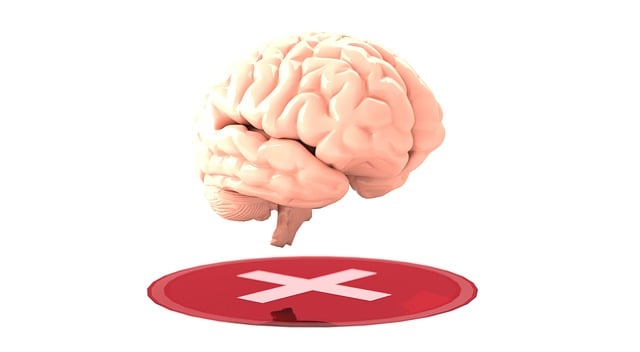Adults exploring their gender identity face unique emotional challenges due to mental illness and societal stigma. Effective therapy for adults gender identity uses evidence-based practices like compassion cultivation, mindfulness, cognitive reframing, and relaxation techniques to foster self-acceptance and resilience. Risk management planning empowers clients to anticipate triggers and develop adaptive coping behaviors. Integrating mindfulness and cognitive restructuring into healthcare provider training enhances support effectiveness, enabling professionals to equip clients with lifelong emotional intelligence for improved mental well-being.
Emotion regulation techniques are essential tools for adults with gender identity issues, helping them navigate the unique challenges they face. This article delves into the significance of understanding and managing emotions, exploring common hurdles in this population. We discuss therapeutic approaches, from mindfulness to cognitive restructuring, offering practical strategies for enhancing well-being. By mastering emotion regulation skills, individuals can build resilience and improve their mental health journey in therapy.
- Understanding Emotion Regulation: Why It Matters for Adults with Gender Identity Issues
- Common Challenges in Managing Emotions for this Population
- Therapeutic Approaches to Teach Effective Regulation Techniques
- Practical Strategies: From Mindfulness to Cognitive Restructuring
- Building Resilience and Enhancing Well-being Through Emotion Regulation Skills
Understanding Emotion Regulation: Why It Matters for Adults with Gender Identity Issues

Emotion regulation is a vital skill for adults navigating gender identity issues, as it empowers them to manage and understand their feelings effectively. In the context of therapy for adults with gender identity concerns, learning emotional regulation techniques can be transformative. Many individuals struggle with intense emotions related to their identity, such as anxiety, depression, or anger, which can significantly impact their daily lives and relationships.
By acquiring these skills, they can enhance their emotional intelligence, allowing them to recognize and interpret their feelings accurately. This, in turn, enables the practice of self-care practices tailored to their unique needs, fostering a sense of agency and resilience. Additionally, mastering emotion regulation techniques facilitates improved conflict resolution skills, which are essential for navigating social interactions and advocating for oneself in various settings, especially within communities that may hold diverse views on gender identity.
Common Challenges in Managing Emotions for this Population

Many individuals struggling with their emotional well-being often face unique challenges, particularly those in the adult gender identity community. The process of emotion regulation can be intricate and complex for this demographic, as they may deal with a myriad of factors contributing to their emotional experiences. One significant hurdle is the intersection of mental illness and societal stigma, which can create barriers to seeking therapy and learning effective coping mechanisms.
The journey towards managing emotions effectively is often impeded by the weight of public awareness campaigns that perpetuate stereotypes or neglect the specific needs of this group. Additionally, healthcare providers play a crucial role in burnout prevention strategies, ensuring they are equipped to offer sensitive support tailored to adult gender identity individuals’ unique circumstances and challenges related to mental health and emotional regulation.
Therapeutic Approaches to Teach Effective Regulation Techniques

In the realm of emotion regulation techniques teaching, therapeutic approaches play a pivotal role in helping individuals effectively manage their emotions. For adults exploring their gender identity, these therapies offer a safe space to navigate complex feelings and develop coping strategies tailored to their unique experiences. One prominent approach is incorporating compassion cultivation practices, which encourage self-acceptance and kindness towards oneself, thereby fostering emotional resilience.
Additionally, stress reduction methods are integral to these therapeutic settings. Mental health professionals can guide individuals through mindfulness exercises, cognitive reframing, and relaxation techniques to mitigate intense emotions and promote a sense of calm. Risk management planning is another crucial component, empowering clients with tools to anticipate triggers, set boundaries, and develop adaptive coping behaviors for managing emotional crises. These evidence-based practices not only enhance emotional regulation but also contribute to overall mental well-being in the context of gender identity exploration.
Practical Strategies: From Mindfulness to Cognitive Restructuring

In the realm of therapy for adults exploring gender identity, teaching effective emotion regulation techniques is a cornerstone of holistic support. Strategies such as mindfulness and cognitive restructuring are powerful tools to help individuals navigate their emotional landscapes. Mindfulness practices encourage individuals to focus on the present moment, cultivating awareness of their thoughts and feelings without judgment. This proactive approach enables folks to recognize and accept emotions, fostering a sense of calm and resilience in the face of challenges related to gender identity expression or transition-related stressors.
Cognitive restructuring, another practical strategy, involves identifying and challenging negative thought patterns. By questioning and reframing unhelpful thoughts, individuals can gain a more balanced perspective on their experiences. This technique empowers them to manage intense emotions, such as anxiety or depression, often prevalent in those navigating gender identity issues. Incorporating these evidence-based methods into Healthcare Provider Cultural Competency Training can significantly enhance the effectiveness of support, ensuring that professionals are equipped to assist clients in developing lifelong emotional intelligence and coping skills.
Building Resilience and Enhancing Well-being Through Emotion Regulation Skills

Emotion regulation skills are not just tools for managing stress and anxiety; they serve as a cornerstone for building resilience and enhancing overall well-being. Through therapy for adults, particularly those exploring their gender identity, these techniques can be transformative. By learning to recognize and control emotional responses, individuals can better navigate the challenges that come with self-discovery and transition. This empowerment leads to improved mental health, fostering a sense of self-esteem and confidence.
Incorporating practices into one’s daily routine, such as mindfulness exercises or journaling, can significantly contribute to what is often referred to as Self-Care Routine Development for Better Mental Health. These habits not only help in the present but also equip individuals with lifelong tools to manage emotional landscapes, thereby positively influencing public awareness campaigns focused on mental health advocacy and understanding.
Emotion regulation techniques teaching is a powerful tool in therapy for adults with gender identity issues, addressing common challenges by providing effective coping strategies. By integrating mindfulness, cognitive restructuring, and other practical methods, individuals can build resilience and enhance their overall well-being. These skills not only facilitate personal growth but also foster a deeper understanding of oneself, enabling folks to navigate life’s complexities with greater ease and confidence.









